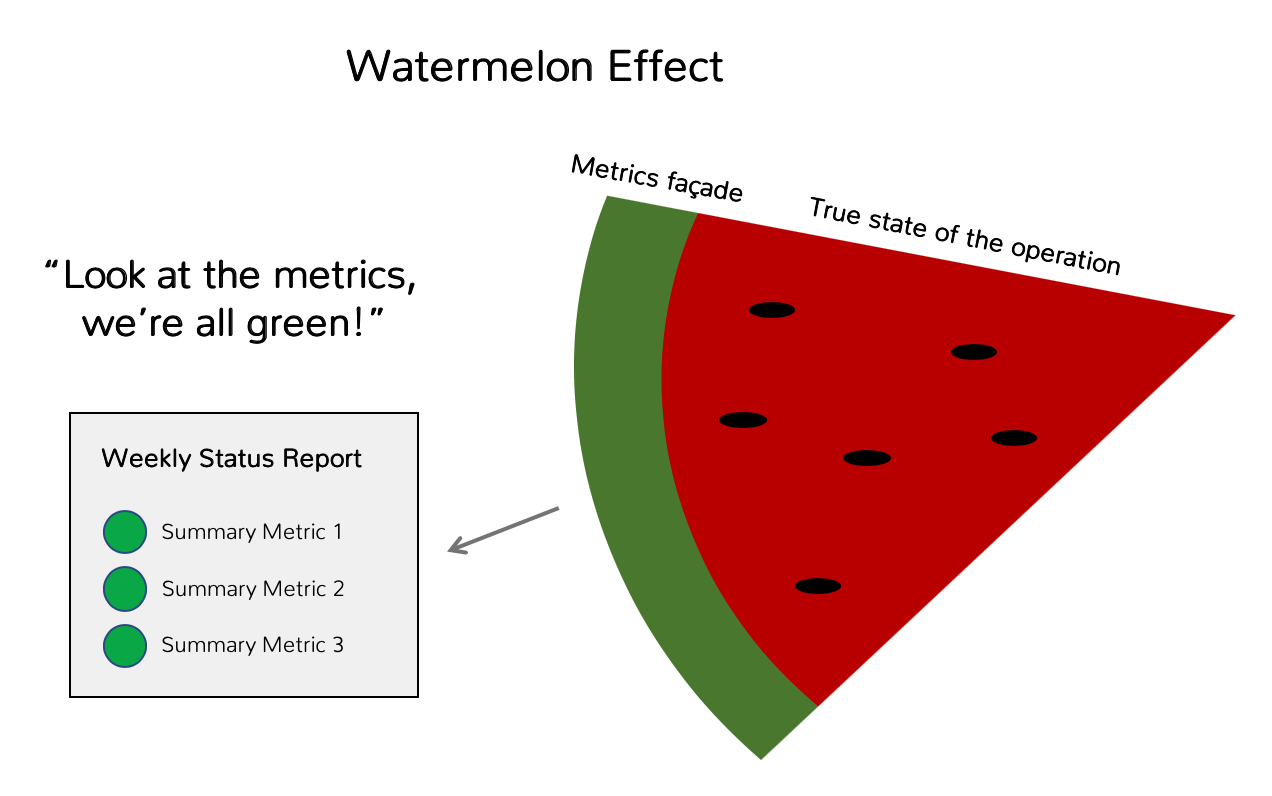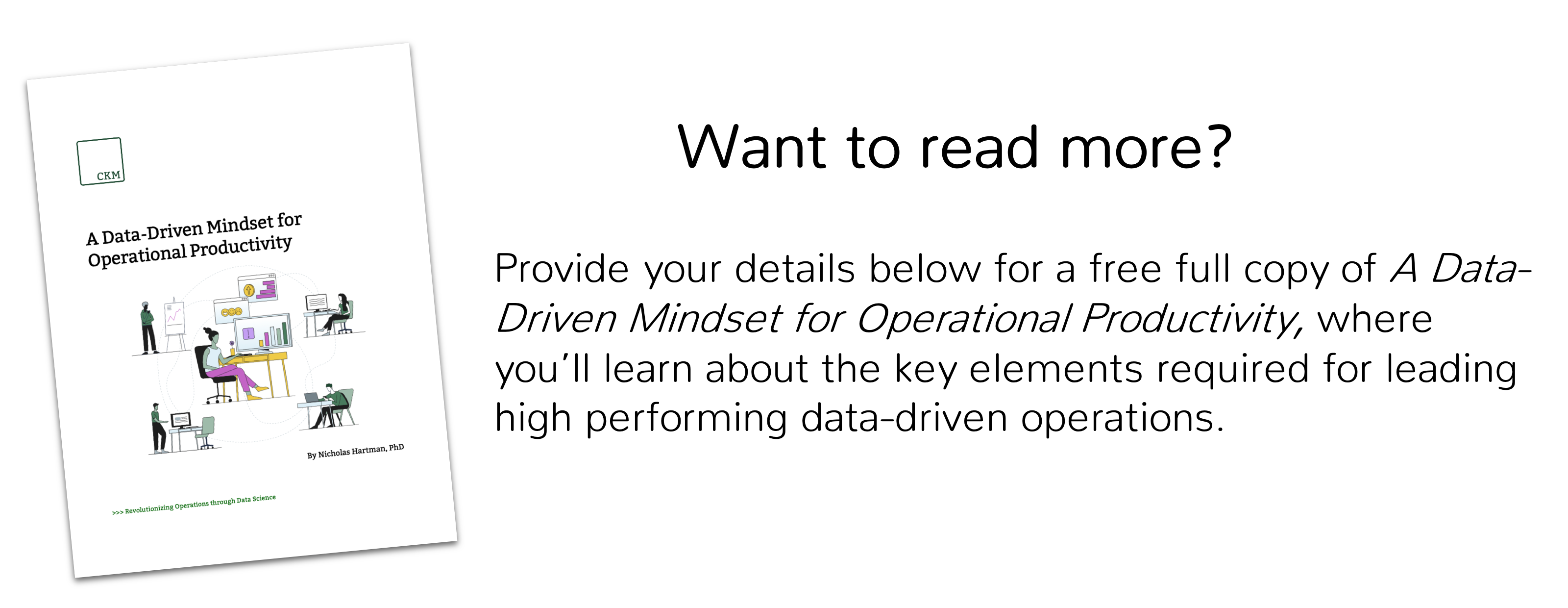Beware of the Watermelon

1 min read
The use of data and advanced data science to drive business performance is certainly no longer a new idea. However, too many organizations still rely too heavily on generic metrics as a means of driving decision making. In extreme cases, businesses over-promote metrics as a sign that they are a data driven organization.
Don’t confuse the presence of metrics in an organization with an organization having a culture of strong empirical decision making. If designed and used correctly metrics, such as % work items breaching service level agreements (SLAs), can further this aim, but it is also very common for metrics to mislead stakeholders into thinking all is well when it’s very much not. This is often referred to as the watermelon effect because the operation puts on a ‘green’ façade of metrics that make it look highly performing, but in reality it’s very ‘red’ on the inside.

If you’re setting metrics for an organization, make sure that they consider all the parameters outlined in this paper for defining productive work. For example, meeting an SLA on a break-fix is likely irrelevant if the ‘break’ in question was unnecessary and should have been avoided in the first place. I’ve seen many organizations heavily promote such a summary metric to clients and stakeholders hoping nobody asks more detailed questions like “wouldn’t it be better to not have this stuff break in the first place?”
If you’re reviewing another organization, be very wary if they focus heavily on promoting summary metrics like ‘SLA % met’ but offer little detail on true productivity metrics like showing how they are reducing unnecessary work or optimizing the power output of their operations (e.g., meeting SLAs might be easy if the operation is grossly overstaffed).
Vague heavy promotion of such summary metrics should generally be a big red flag that you might in fact be looking at a big fat juicy watermelon.

